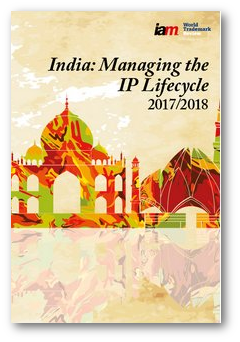
 Summary: The patent lobby is attempting to find new ways to impose patents on software (with euphemisms like "reasonable", "non-discriminatory" or "fair"), even in places that explicitly disallow these
Summary: The patent lobby is attempting to find new ways to impose patents on software (with euphemisms like "reasonable", "non-discriminatory" or "fair"), even in places that explicitly disallow these
THE Association for Competitive Technology (ACT), Business Software Alliance (BSA) and other front groups of Microsoft have long lobbied for FRAND. It's one way for Microsoft to systematically impede/suppress/discourage if not altogether ban/obstruct Free/Open Source software. Cablegate has a lot of evidence of it.
Over at SpicyIP, Rajiv Choudhry discusses the new FRAND initiative in the context of what he terms an “ongoing turf war” between the TRAI and the CCI. In the patent space, the latter has become a fixture thanks to its intervention in two SEP disputes involving Ericsson. The CCI launched investigations of the Swedish company based on complaints by both Intex and Micromax, both of which Ericsson sued for patent infringement. In March 2016, the Delhi High Court ruled that those probes could continue, suggesting that the CCI is going to have jurisdiction to look into such SEP matters going forward. If anything comes of this TRAI consultation, there could be a second SEP watchdog in India that patent owners will need to pay close attention to.
Qualcomm’s patent fee model is based on the widely used so-called “fair, reasonable and non-discriminatory” (FRAND) licensing model. The European Commission, however, has yet to make a final decision on which technology patent fee model it favours.
There have been strong indications that the European Commission's Directorate-General for Competition (DG COMP) has serious concerns about the potentially anti-competitive effects of Qualcomm's proposed acquisition of NXP Semiconductors. By now, there can be no doubt about that: the Commission's website states that Qualcomm submitted commitments four days ago. No one offers commitments if unconditional clearance is achievable.
Typically, companies discuss such proposed commitments with the Commission beforehand. If the Commission believes the commitments might be useful, it puts them to a market test, giving stakeholders an opportunity to comment. Here, there is no official confirmation--just rumors--of an ongoing market test.